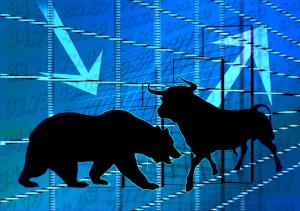Buy When The Black Swan Flies; Sell When It Comes Home To Roost
Summary
- Market-beating self-directed value investors buy wonderful companies with strong fundamentals when macroeconomic events produce attractive valuations.
- Then sell or reduce the holding on weak fundamentals or inflated valuations when microeconomic events erode the company's financial strength or the demand for its products and services.
- But Mr. Market continues to entertain the purchase of attractive fundamentals at otherwise high prices and narrow margins of safety.
An age-old adage in value investing dictates the purchase of the common stocks of wonderful companies with strong fundamentals when macroeconomic events artificially drive down the ticker prices. Then sell or reduce the holdings when microeconomic events weaken the fundamentals.
In other words, buy on the indirectly unrelated macro event and sell on the directly related micro event.
Two powerhouses of investing wisdom, essayist, Nassim Nicholas Taleb and value investor, Warren Buffett have each succinctly defined the macro and microeconomic impacts of intelligent investing.
The Black Swan

In his bestselling nonfiction book, The Black Swan: The Impact of the Highly Improbable (New York: Random House, 2007), Mr. Taleb presents his black swan theory or the extreme impact from certain kinds of rare and unpredictable events or outliers. He then explores the human tendency to find simplistic explanations for the occurrence in retrospect. This rationalization is in spite of an investor taking a beating as a result of the surprise episode.
The timing of the book was profound as the Black Swan event, now known as the sub-prime mortgage crisis that led to the Great Recession, occurred one year after Taleb's book was published.
But Mr. Taleb writes that he does not attempt to predict Black Swan events. To the contrary, he proposes that being aptly prepared for these surprise macro events, should one occur, is more prudent than actually predicting them. He illustrates by suggesting a Black Swan event is a "surprise for the turkey but not the butcher."
His theory translates to the typical Wall Street philosophy of trying to predict market fluctuations, i.e., the market timer as the turkey. The self-directed investor should outwit the turkey by manipulating the market's ebb and flow to his or her advantage after they unexpectedly occur, i.e., the value investor as the butcher.
Attempting to Predict Black Swan Events is the Fool's Game
.jpg)
When the market timer is wrong in predicting a Black Swan event—the likely outcome—he or she will lose substantial assets from being too long or short.
On the other side of the trade, the thoughtful, self-directed investor is prepared to take advantage of any surprise Black Swan macroeconomic event. He or she allocates planned cash reserves to consider new or increased positions in the stocks or funds of fundamentally strong companies. The disciplined investor takes advantage of indiscriminately depressed prices from the macro event. These incidents, any tragedies notwithstanding, are the self-directed investor’s white swan.
For example, investors that initiated, held, or added to quality positions immediately following the Market Crash of 1987, the Dot Com Crash of 2000-2002, or the Great Recession of 2007-08, invariably profited from subsequent booming portfolios.
To be sure, a celebrated few did luckily predict these events and perhaps benefited immensely, but many investors reacted after the fact by foolishly selling-off already depressed securities. And more than a few of these Black Swan victimized portfolios have yet to recover.
However, investors who successfully predict a Black Swan event often become intoxicated by the lucky call. He or she adopts an unproductive investment philosophy on the sudden perceived ability to predict future events. Such inebriation of financial intellect induces the proverbial crystal ball that encompasses a false state of being. The luck soon runs out as does the principal on his or her investments.
Fear and Greed Are Pricing Mechanisms for Self-Directed Investors

Here's one way that Warren Buffett presents his value investing wisdom of buying when a black swan-type surprise event affects an entire economy or sector; and then selling when the event affects only a company or industry:
I will tell you how to become rich. Close the doors. Be fearful when others are greedy. Be greedy when others are fearful. - Warren Buffett
What Mr. Taleb wrote so eloquently in a 400-page book, Mr. Buffett independently coined in a brief passage. The lessons of Taleb and Buffett for self-directed investors are to stop market timing via stock trading and start investing or divesting as macro and microeconomic conditions dictate.
Fundamentals, Valuation, Margin of Safety, and a Watchlist

The current Wall Street consensus appears an overheated bull market where speculation rules while mostly ignoring valuations. Shorts are perhaps the present exception although engaging in speculative activity, nonetheless.
However, the prudent self-directed investor sticks to the tried and true approach of researching a company's fundamentals for ownership or divestiture. He or she then measures its valuation metrics to determine whether to buy, add to, reduce, or sell the holding.
As a result of the present climate, The Self-Directed Investor Model Portfolio is currently presenting as more as a watchlist than a buy list. However, I will continue to seek excellent, fundamentally strong, publicly-traded companies that I would love to take part as a proud owner. I am an advocate of those companies that harbor quality products or services and consistent profitability. When warranted, I add the stocks to The Model Portfolio.
Nonetheless, self-directed common stock investor's should practice patience while awaiting Mr. Taleb's unpredictable Black Swan macroeconomic event, or Mr. Buffett's fearful Wall Street retreat from otherwise quality stocks.
As prices drop to attractive valuations, sift your watchlist for superb, fundamentally sound companies trading at appealing valuations that offer what you perceive as reasonable margins of safety.
Only at that juncture, should you add the corresponding major-exchanged-traded, dividend-paying common stock to your portfolio.
And whenever the swan comes home to roost, i.e., Wall Street traders get greedy, thereby negatively affecting the valuation or margin of safety of a single holding, consider reducing that position to take profits or produce investable cash.
Conversely, if the micro event or trader-induced fears render attractive valuations with perceived wide margins of safety, consider purchasing a new stake or add to the position.
Choreograph a Portfolio, Not a Ballet

We would never celebrate Black Swans and the inevitable damage each does to fellow dancers in a ballet. That rule should also apply to the investment arena or the victimized inhabitants of an affected economy or sector.
Instead, revisit your portfolio and watchlists and commence new research to look for individual companies where strong fundamentals, attractive valuations, and comfortable margins of safety merge in a rare perfect storm of opportunity. It is your inherent responsibility as a self-directed investor on Main Street to be greedy when Wall Street is fearful.
And when Wall Street is greedy, or the swan comes home to roost in an invested company or industry, reverse course and reduce or sell-off holdings as key metrics dictate. Accomplish this with large doses of rationale, saving any emotion to celebrate successes or to assess failures after the fact, but never before.
Value Matters in All Markets
One of my readers once wrote:
Valuation does matter. I am afraid those initiating a lot of buying in today's market are going to learn that lesson the hard way. This is especially true for those ignoring the elements of risk management in the quest for yield.
I agree that individual securities continue to show attractive fundamentals and enticing dividends, but the prices are steep in relation to reasonable valuation and margin of safety. Regardless of how one may measure the highly subjective calculation of intrinsic value, stock prices appear stretched.
Nevertheless, maybe the market keeps climbing. Who knows?
But consider waiting for prices of quality stocks to drop to more reasonable levels, i.e., practice some patient risk management in the highly impatient Wall Street arena.
Disclaimer: David J. Waldron's articles, blogs, and podcasts are for informational purposes only. The accuracy of the data cannot be guaranteed. Narrative and analytics are impersonal, i.e., not ...
more


